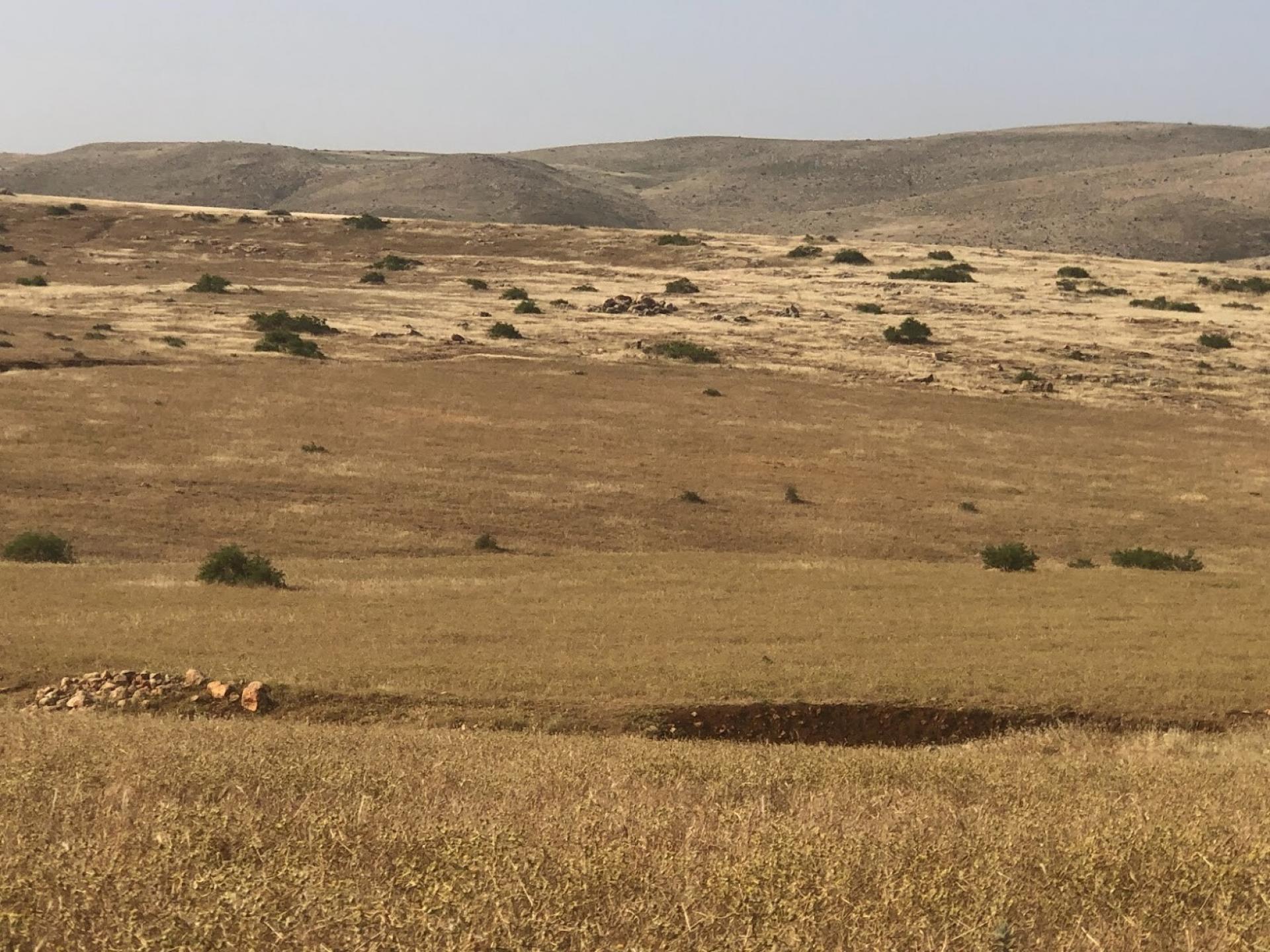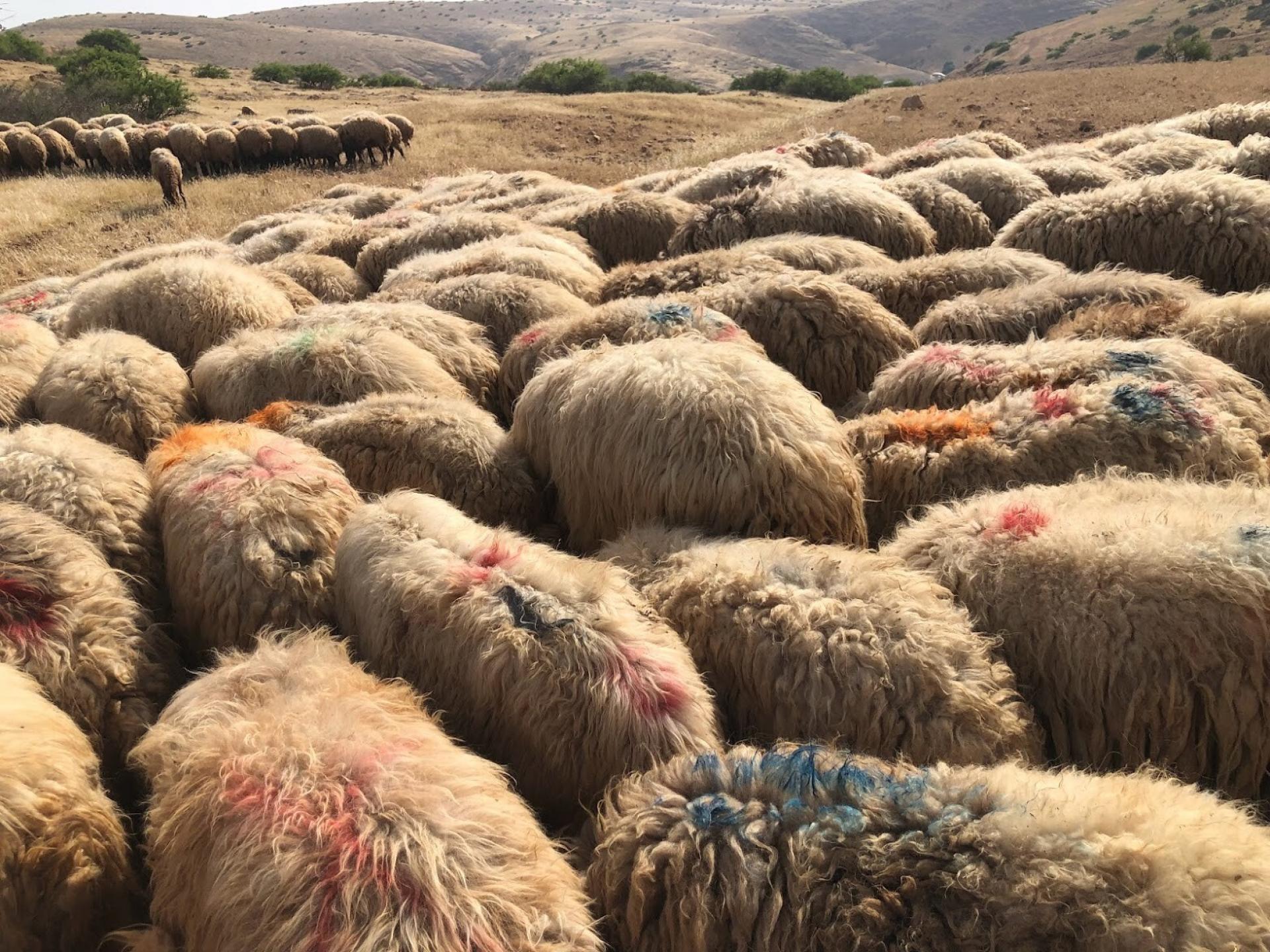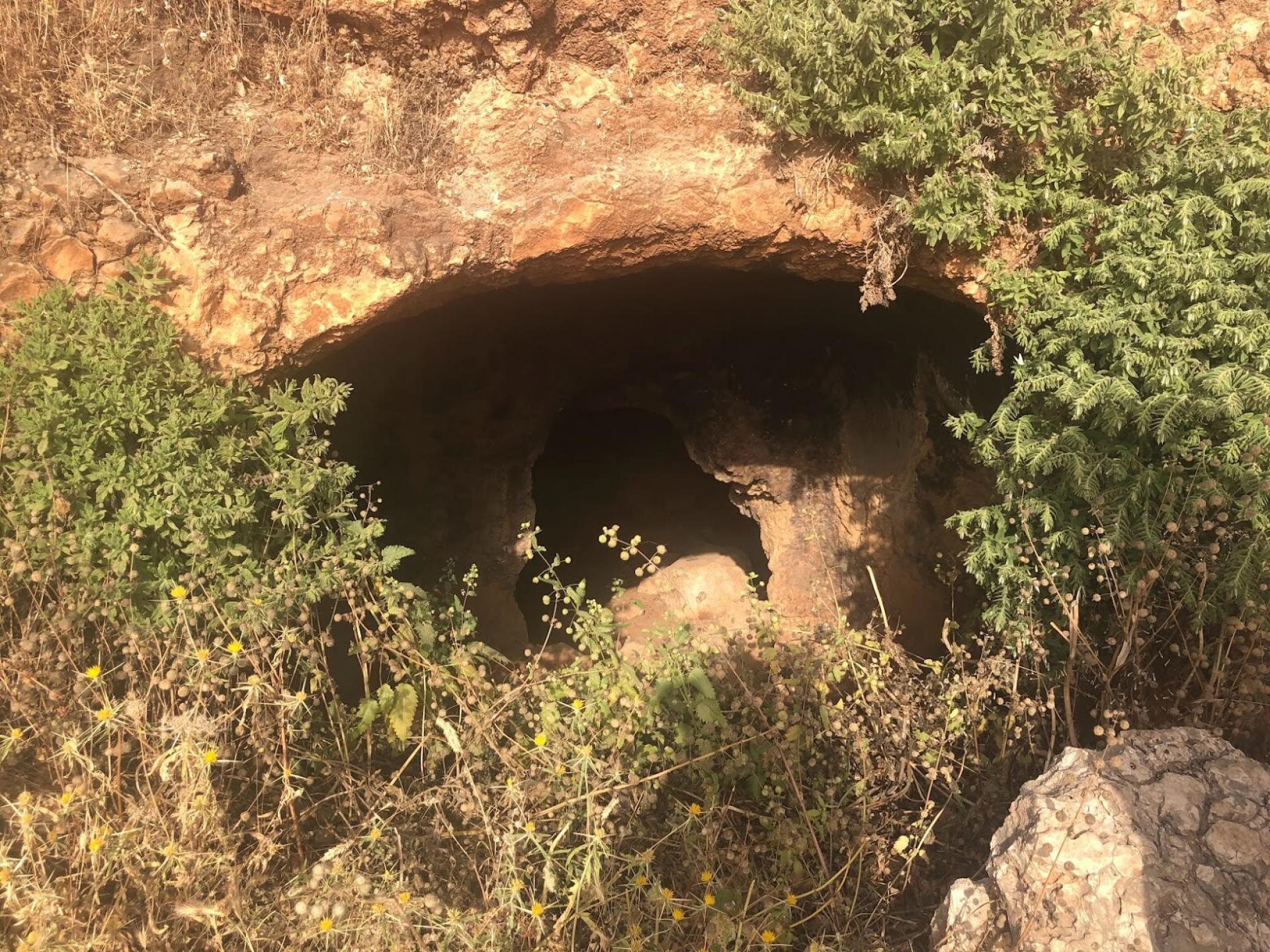Hamra, Jordan Valley, Accompanying Shepherds
It’s Holocaust Memorial Day, the Palestinian Jordan Valley has shed its greenery in favor of the brown-yellow tones that will dominate until the next rains come in the fall. At 10 am came the commemoration siren, all the way to the grazing ground. I stood there, thinking about those for whom I stand, and why.
We spend time at Fadel’s, in Hamra. I made his acquaintance on my last shift, as have you – my readers. Today, after the (Muslim holiday) Leilat al-Qader the shepherds are lighthearted and sharing. It’s a short work day – the heat and the Ramadan fast limit grazing time to 3 hours. The sheep are thirsty and the shepherds want to go to sleep, like all the others fasting around them.
We go up to the grazing area and spend 3 hours looking at the beautiful scenery and talking about life.
Fadel and Muntasar are cousins, both shepherds since the age of ten. They know nothing else. They have not been anywhere else. The furthest they got from where they live is the waiting line at the Nablus clinic. This is what they know. The word ‘habituated’ is very central in everyone’s life. “Mit’awdeen”- habituated. No need for anything else. On the other hand, they become alert when talking about Ramadan and whatever it brings along. Every day and its usual assignments and duties. However, during the Ramadan month, a kind of peace descends on everyone, there is a need to think about existence and let the quiet penetrate the spirit. There is a kind of talk that captivates one’s heart. And what about curiosity? I ask. They don’t really get my point. No need. They see the whole world on TV.
Their grazing ground is officially defined ‘state land’, although they had been there long before it became ‘state land’. For years they cultivated good neighborliness with Hamra, the settlement nearby. They would pay for grazing grounds as the need arose. Ever since Moshe came around, however, and erected his outpost on their other side, life has changed. Whenever he wishes, he accuses them of trespassing, summons police and army, and causes fright and constant insecurity. The guy with me - an army veteran like all the young Taayush volunteers who now come to the Palestinian Jordan Valley from the (Jerusalem) anti-Netanyahu protests or elsewhere - knows well enough what the army may or may not do. The shepherds don’t know these rules. For example, the army shows a phone photo of a ‘closed military zone’ order valid for 24 hours. For the shepherds, that’s just so. They would not dream of demanding to read what the form actually says. The excuse for closing the area. Whether this excuse withstands legalities, and other questions that only the powers who wrote such laws or studied them in-depth and have time and the position to do so – can deal with it. So, this is what it looks like: two shepherds whose schooling was finished as they turned ten, facing a knowledgeable young Israeli army veteran who knows not a single word of Arabic, and I who translate and know that not much will result from this. We’ll get home, they will wait for tomorrow’s volunteers, and no one knows when Moshe will decide to turn the area into a ‘closed military zone’ again.
At 10:30 a.m. the sheep signal their thirst and actually begin to stampede towards the water troughs awaiting them in the encampment, which includes 4 families of the same clan. It is built neatly and nicely on a hard surface filled with stones and potholes. The sheep pens are a sight to see. “Dung is removed every day”. Next to them is a large greenhouse kept by Palestinians from the area, who grow tomatoes and grapes.





